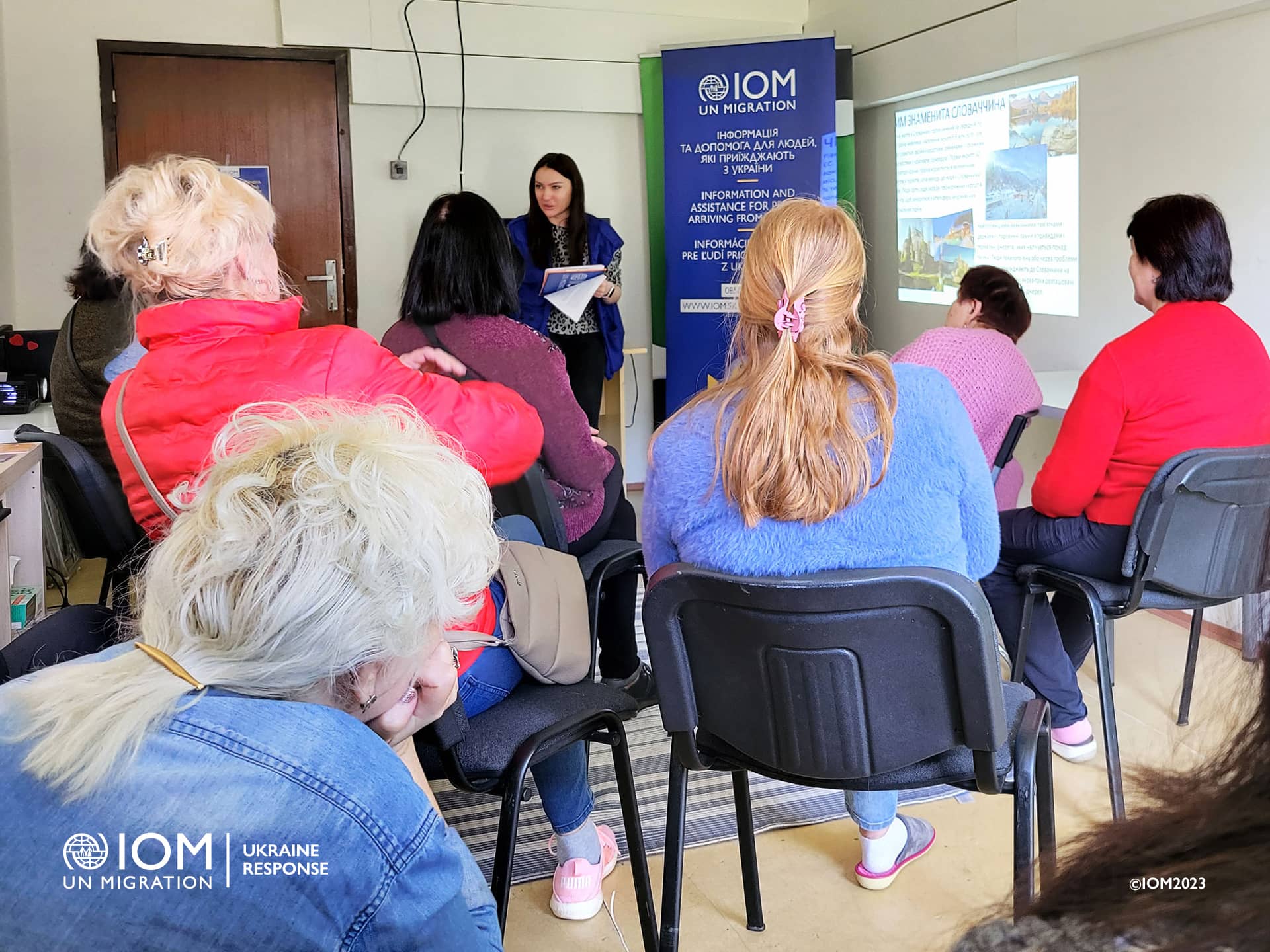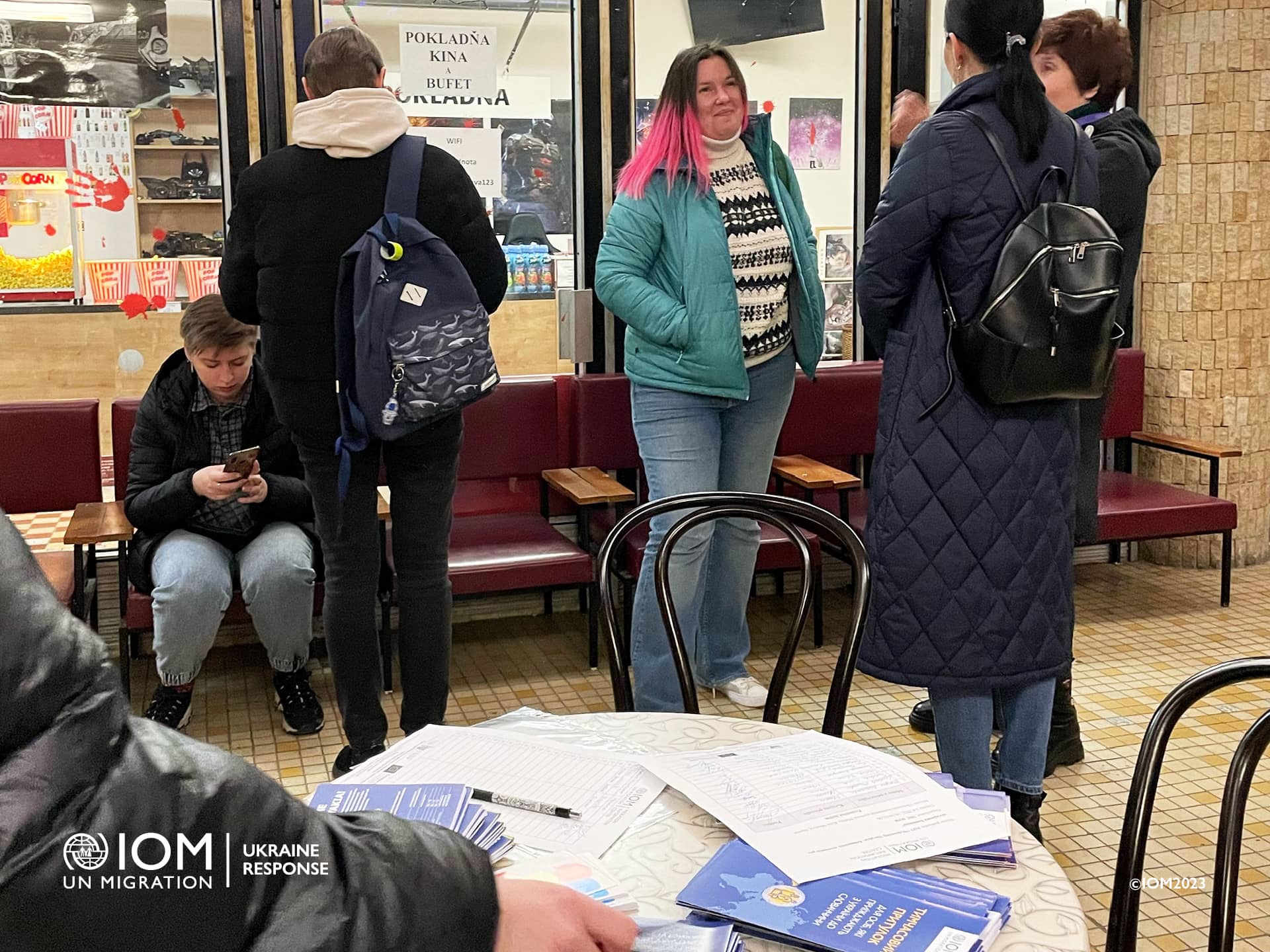People who left Ukraine after 24 February 2022 often found themselves in a different sociocultural context in their new country. Understanding the local culture and society in which they now live can help them better adapt to their new environment.

For elder people it is crucial to know how to search information and services they need. IOM social counsellors take them through various life situations they might encounter in Slovakia. Photo © International Organization for Migration (IOM).
People from Ukraine can get to know local customs and values in Slovakia at sociocultural orientation programmes. The International Organization for Migration (IOM), based at the Humanitarian Centre in Gabcikovo, has organised several workshops to provide refugees with basic information about Slovakia and the region they are based in, the social and health care systems, means of public transport, cultural events and various aspects of life in Slovakia.
In workshops called “Life situations, cultural pathways and social whereabouts” IOM social counsellors also take people from Ukraine through various life situations they might encounter.
For example, Olena, a 67-year pensioner who lives alone in the Humanitarian centre, learned how to use mobile applications to buy tickets and how to search for doctors she needs to visit. In addition, Ira, who lives in Gabcikovo with her daughter and granddaughter, appreciated getting information about Slovak culture. “It was very interesting; I learned a lot about Slovaks and their mentality. I’m glad I came to the workshop,” she said.
Learning more about the host country helps people from Ukraine react better to the changing environment, adapt quicker and gradually integrate into the local society. Activities targeted on sociocultural orientation strengthen their capacities to manage various situations and to act more independently in line with the local sociocultural context.
While sociocultural orientation programmes help people from Ukraine adapt to a new environment, it’s also important to recognise their cultural diversity and the richness that they themselves bring to the new communities.

People are coming to see the Ukrainian movie Pamfir. Cultural events play an important role in helping refugees adapt to their new environment while also creating a space for exposure to diverse cultures. Photo © International Organization for Migration (IOM).
Events that showcase their culture and traditions, such as the screening of the Ukrainian movie “Pamfir” in Martin in April 2023, provided an opportunity to introduce different cultural settings to the local people and enable communities to get to know each other better. The screening of the film was followed by a discussion about the topics covered in the movie, including father-son relationships, family relationships and bonds, migration and cultural differences between various countries.
“By organising a cultural event to discuss different topics, people and communities can get to know each other better. This simply creates a space for cultural diversity and mutual understanding,” said IOM Community and outreach coordinator, Tomáš Gulán, who facilitated this event.
Information workshops, discussions and cultural events can play an important role in helping refugees adapt to their new environment while also creating a space for exposure to diverse cultures and traditions.
Read more about our recent support to people from Ukraine:
With the support of:

Norwegian Ministry of Foreign Affairs

Migration Information Centre to Support Integration of Migrants in Slovakia (phase X, Individual Project). This project is co-funded by the European Union from the Asylum, Migration and Integration Fund (AMIF). Home Affairs Funds.
 Slovenčina
Slovenčina
 Українська (Україна)
Українська (Україна)
 English
English
